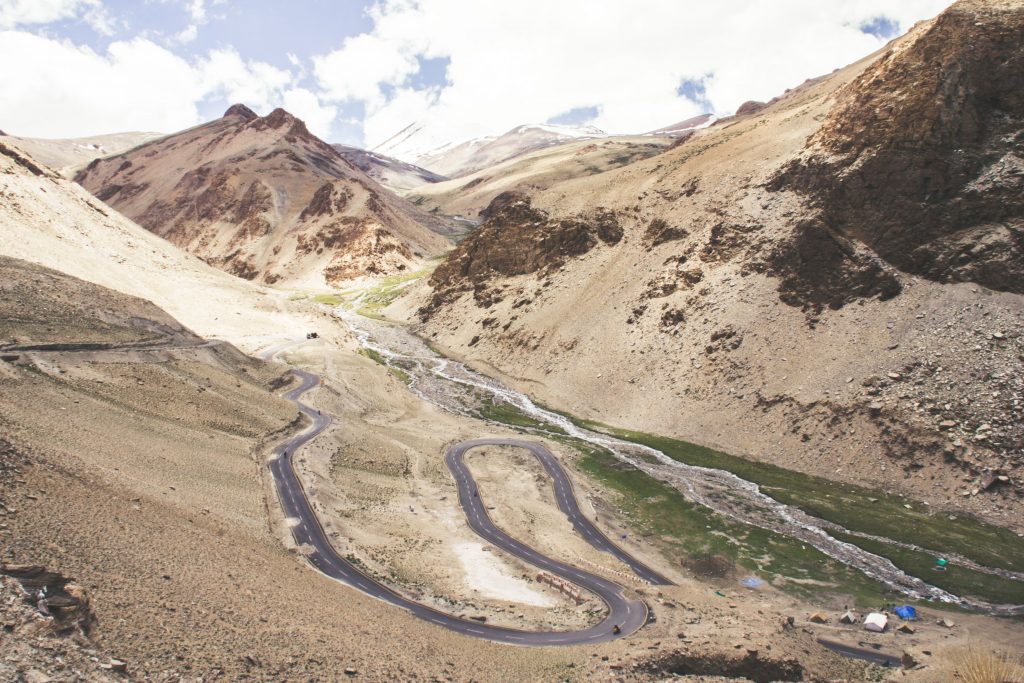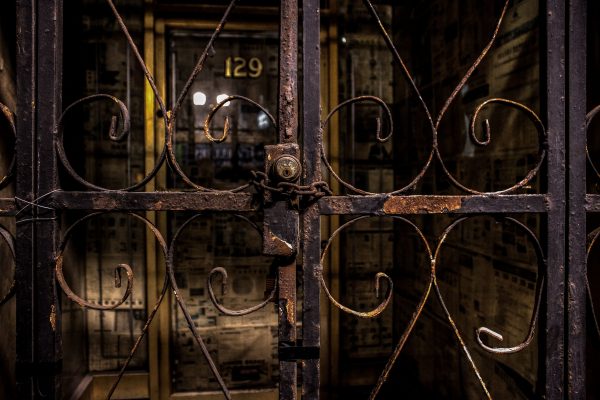The location of Ziklag—a town in the south of Philistia between Gaza on the coast and Beersheba inland—exposed the city to marauding neighboring Amalekites. So when Philistine King Achish of Gath welcomed David and gave him Ziklag, the king likely was thinking David and his 600 men would help him defend his southern border.
The town figures more largely in David’s life than in the geography of the region. You won’t normally find it on maps at the back of your Bible. But it gives us a fascinating story, recorded in the last five chapters of 1 Samuel and the first two of 2 Samuel. The death of Saul is central to the story, but this will not be our focus today. We will consider whether David’s flight to Philistine country from fear of Saul was a false loop in the divinely purposeful path of his life.
In chapter 26 David learns that Saul—plus 3000 select troops—is on a mission to capture and kill David, the prophesied heir to Saul’s reign. They have camped by a hill in the wilderness and are settled for the night. David and Abishai walk into the camp and find Saul and his armor bearer asleep. Abishai tells David that God has delivered Saul into their hands and asks permission to kill him. David rejects his offer and the basis of his offer.
Destroy him not: for who can stretch forth his hand against the Lord’s anointed and be guiltless? . . . Either the Lord shall smite him, or his day shall come to die, or he shall descend into battle and perish. The Lord forbid that I should stretch forth my hand against the Lord’s anointed (1 Sam. 26:9-11).
David takes Saul’s spear and canteen of water then speaks to the king, shaming him for his unjustified malice. He links his behavior toward Saul with his desire for God to protect his own life from Saul. His words seem very close to an expression of faith.
And behold, as thy life was much set by this day in mine eyes, so let my life be much set by in the eyes of the Lord, and let him deliver me out of all tribulation. (1 Sam. 26:24)
But David’s faith, such as it was, falters.
And David said in his heart, I shall now one day perish by the hand of Saul. There is nothing better for me than that I should speedily escape into the land of the Philistines; and Saul shall despair of me to seek me any more in any coast [border] of Israel. So shall I escape out of his hand. (1 Sam. 27:1)
He and his men flee to Philistine territory ruled by Achish of Gath, who warmly receives him. Achish honors David’s request to be given a “place in some town in the country” away from “the royal city.” It was a canny request, framed with humility but with a purpose in mind. It was not the first time David had “behaved himself wisely” in the presence of a dangerous king (1 Sam. 18:14-15, 30). In chapter 28, the tables turn.
David is now safe in Ziklag and is raiding the towns on Philistia’s southern border leaving none to “publish it in Gath.” David with his men goes to Gath and offers to fight with Achish against Israel. Their offer is rejected by the princes of Achish, as they recall David’s victories against them under Saul.
David and his men return to Ziklag to find that their town has been raided by an Amalekite band and burned to the ground. The Amalekites have taken their wives and children along with everything they owned. David’s men turn in their grief against their leader and talk of stoning him.
David turns to the Lord. He asks counsel from the high priest Abiathar—who has the holy ephod—if he should pursue the Amalekites and if he will overtake them. Abiathar tells him yes. David finds the Amalekites enjoying their booty, slaughters them, and reclaims all they took from Ziklag—women and children and material goods, a haul dwarfed by what was collected from their earlier raids.
Meanwhile Saul’s depleted army is destroyed by the Philistines at Mt. Gilboa, and Saul and his son Jonathan are slain. In 2 Samuel 1, David laments their deaths in splendid poetry.
God has now removed the main obstacle to David’s anointing as king by Samuel, and David moves his center of action to the ancient patriarchal city Hebron. Here he receives homage from the leaders of Judah and solicits the same from the other tribes, who for most part enthusiastically comply.
So was David’s flight from Saul a lapse in faith that brought him and his men needless grief? Should it not have happened? It might appear so up close, and who can say finally that it wasn’t? But a certain fact—easily overlooked at the end of the account of David’s spoiling of the Amalekites—suggests otherwise.
Each of David’s followers regained his possessions and evidently a percentage of what was left over, including those men that stayed “by the stuff.” David kept the rest. Why? Wasn’t that selfish? Wasn’t his keeping of the rest unworthy of an aspiring king?
We have what seems an answer to that question that ties in with the larger one of what I have called the Ziglag Zigzag, what we are to make of David’s flight to Gath.
And when David came to Ziklag [after his slaughter of the Amalekites], he sent of the spoil unto the elders of Judah, even to his friends, saying, Behold a present for you of the enemies of the Lord; to them which were of Bethel, . . . and to them which were in Hebron, and to all the places where David himself and his men were wont to haunt. (1 Sam. 30:26-31)
The spoil from the Amalekites enabled David to give gifts of gratitude to the leaders of Judah—David’s ancestral tribe and the ruling tribe of Israel—and other notables who had befriended David. The gifts—and here is their significance for us today—prompted them to offer David what would become the rule of the nation.
So was Ziklag a zigzag in David’s life path? A failure of faith with painful consequences? That’s hard to say absolutely. We would have to get into God’s wheel house and look at his charts to really know. I think we can get some clues from the Psalms David wrote, however. We can also garner some clues for ourselves.
The further we get down the road of our lives the more we can see and the better we can see. What seemed a bent line can later appear straight, or straighter than it seemed at the time. God can give a jerk to a crooked path and make of it a ruler line, or show it capable of becoming such. From Euclidian geometry comes the axiom that the shortest distance between two points is a straight line. From common wisdom comes the truth that the longest way round may be the shortest way home.
My thought is that God has many more scenarios than we can know. He is always slackening and tightening, loosening and reeling in, inserting and extracting to counter our lapses and foolish impulses. The result may not be as elegant a pattern as it could have been. Who is to say?
But we have a great and good God. He is a great weaver of lives. He conducts a life as an orchestra, making shrewd adjustments when something goes wrong, performing damage control as needed. You’ll find dissonance here and there in Beethoven and Bach. It results in some of the most gorgeous music we have.
That’s not to say that every departure from truth and right is a justifiable one. David had one that most certainly was not, and yet one that God extended from in His larger plan in a positive way. There is redemptive potential in failures of the most absolute kind. We know that truth from the first episode in Biblical narrative.
In David’s case it seems the Ziklag swerve may not have been a zigzag at all. Or if so, an elegantly managed one. David was providentially restrained from fighting alongside the enemies of God.
A verse ending chapter 26 of 1 Samuel sticks in my mind. I underlined it in my Bible. For me, it points beyond itself, encapsulating the intertwined histories of David and Saul. It resonates with life options. “So David went on his way, and Saul returned to his own place.” David’s way was God’s, or would become so because of God’s pulling power.








